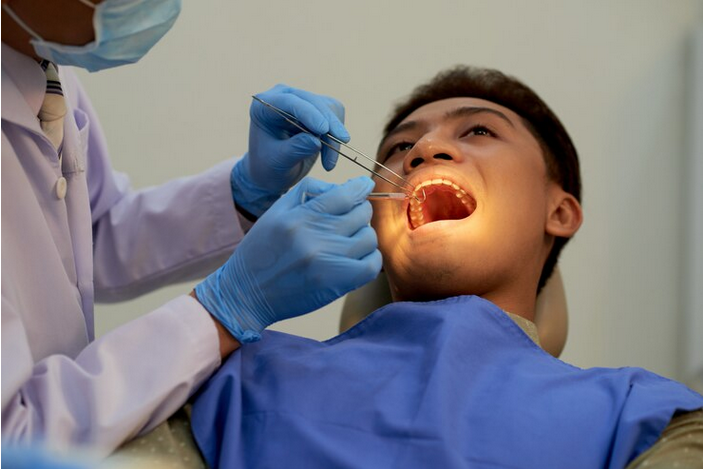Introduction:
Dental emergencies can strike unexpectedly, causing pain, discomfort, and anxiety. Whether it's a severe toothache, a broken tooth, or a knocked-out tooth, knowing where to turn for urgent dental care is essential for maintaining oral health and well-being. Finding an emergency dentist nearby can provide prompt relief and peace of mind in times of dental crisis. This guide aims to provide valuable insights into navigating dental emergencies, including how to find an emergency dentist near you, what to expect during emergency dental visits, and tips for managing common dental emergencies at home.
Understanding Dental Emergencies:
Dental emergencies encompass a wide range of urgent dental issues that require immediate attention to alleviate pain, prevent further damage, and preserve oral health. Common dental emergencies include severe toothaches, broken or chipped teeth, knocked-out teeth, lost fillings or crowns, abscesses, and soft tissue injuries. While some dental problems may seem minor, they can escalate quickly if left untreated, leading to complications and irreversible damage. Recognizing the signs of a dental emergency and seeking prompt care is crucial for preventing potential complications and restoring oral health.
Finding an Emergency Dentist Near You:
When faced with a dental emergency, the first step is to locate an emergency dentist nearby who can provide prompt care and relief. There are several ways to find an emergency dentist in your area, including:
- Referrals from Family and Friends: Ask family members, friends, or colleagues for recommendations of emergency dentists they trust and have had positive experiences with.
- Online Search: Use search engines or online directories to find emergency dentists in your area. Look for dentists who offer emergency dental services and have positive reviews from patients.
- Dental Insurance Provider: Contact your dental insurance provider to inquire about emergency dental services covered under your plan and to find dentists within your network.
- Dental Associations: Check with local dental associations or professional organizations for a list of emergency dentists in your area who meet professional standards and qualifications.
- Hospital Emergency Departments: In cases of severe dental emergencies, such as trauma or facial swelling, consider seeking care at a hospital emergency department equipped to handle urgent dental cases.
What to Expect During Emergency Dental Visits:
When visiting an emergency dentist for urgent care, you can expect the following:
- Assessment: The emergency dentist will conduct a thorough evaluation of your dental condition, including an examination of the affected area, diagnostic tests, and X-rays if necessary, to determine the extent of the problem.
- Treatment Options: Based on the assessment findings, the emergency dentist will discuss treatment options with you, including immediate interventions to alleviate pain and prevent further damage, as well as long-term treatment plans to address underlying dental issues.
- Pain Management: The emergency dentist will prioritize pain management to provide immediate relief from discomfort, which may include prescribing pain medications, administering local anesthesia, or performing emergency procedures to address the source of pain.
- Follow-Up Care: Depending on the nature of the dental emergency, the emergency dentist may recommend follow-up appointments for ongoing treatment, monitoring, or additional procedures to ensure optimal healing and recovery.
Managing Common Dental Emergencies at Home:
While seeking professional care is essential for dental emergencies, there are steps you can take at home to manage common dental problems before seeing an emergency dentist:
- Toothache: Rinse your mouth with warm salt water, floss gently to remove any trapped food or debris, and take over-the-counter pain medications as directed to alleviate discomfort.
- Broken or Chipped Tooth: Rinse your mouth with warm water, apply a cold compress to the affected area to reduce swelling, and avoid chewing on the injured tooth until you can see an emergency dentist.
- Knocked-Out Tooth: Handle the tooth by the crown (top) and avoid touching the root, rinse it gently with water if dirty, and try to reinsert it into the socket if possible. If not, place the tooth in a container of milk or saliva and seek immediate dental care.
- Lost Filling or Crown: If a filling or crown becomes loose or falls out, avoid chewing on the affected tooth and keep it clean. Temporary dental cement or over-the-counter dental adhesive can be used to temporarily reattach the filling or crown until you can see an emergency dentist.
Conclusion:
Dental emergencies can occur unexpectedly, causing pain and distress. Knowing how to find an emergency dentist near me and what to expect during emergency dental visits is essential for managing dental emergencies effectively. By seeking prompt care from an emergency dentist and following appropriate home care measures, you can alleviate pain, prevent further damage, and preserve oral health. Remember to prioritize dental health and seek professional care whenever faced with a dental emergency, as early intervention can make a significant difference in the outcome and long-term health of your smile.





Comments